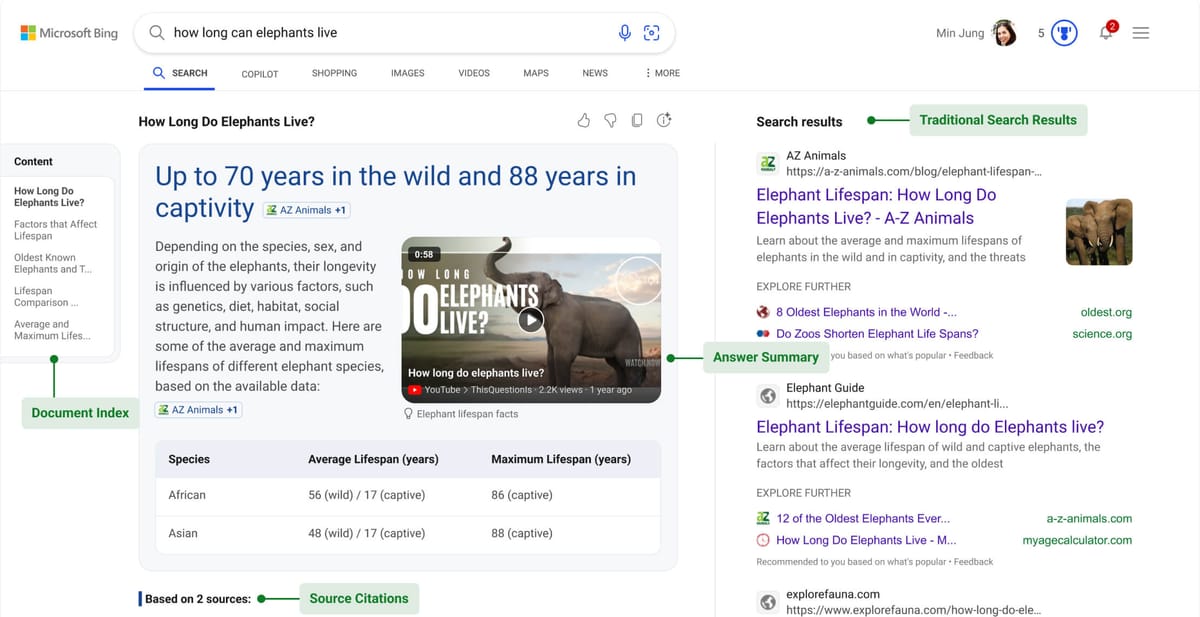
OpenAI has taken the wraps off SearchGPT, a prototype AI search feature that aims to reimagine how users find and interact with online information. The tech is still in limited testing, but represents a bold step into territory long dominated by Google.
SearchGPT leverages OpenAI's language models to provide conversational, real-time answers to user queries, complete with clear attribution to source material. This approach marks a significant departure from traditional search engines, which typically return a list of links for users to sift through.
One thing that sets SearchGPT apart is its commitment to publisher partnerships. Over the last year, OpenAI has gone to great lengths to secure partnerships with leading content publishers. SearchGPT is designed to prominently cite and link to publisher content. In-line attributions and named links ensure users can easily engage with the source material, fostering a symbiotic relationship between AI and traditional media.
Nicholas Thompson, CEO of The Atlantic, one of OpenAI's partners, underscores the importance of this relationship: "AI search is becoming a key way people navigate the internet, and it's crucial that technology values, respects, and protects journalism and publishers."
The prototype's key features include:
- Rapid, conversational responses to queries
- You can ask follow-up questions that build on shared context
- In-line citations and prominent source links
- A sidebar with additional results for deeper exploration
OpenAI emphasizes that SearchGPT is designed to drive traffic to publishers' sites, but the long-term impact on web ecosystems remains to be seen. The company is also introducing tools for publishers to manage their appearance in SearchGPT results, separate from AI training data opt-outs.
OpenAI's entry into the search market comes amid fierce competition in what many anticipate to be a highly lucrative AI search sector. Startups like Perplexity have gained rapid popularity for their innovative approaches to search, and tech giants are taking notice. Earlier this year, Google launched AI Overviews, enhancing its search results with AI-generated summaries, and just yesterday, Microsoft unveiled its plans for Bing's new generative search experience.

As the search landscape potentially shifts, questions linger about user privacy, the accuracy of AI-generated responses, and the economic model that will support this new approach to information retrieval.
SearchGPT is currently in limited testing (personal accounts can request access), but OpenAI plans to integrate the most successful features directly into ChatGPT in the future. The company is seeking feedback from both users and publishers to refine the prototype and improve areas like local information and commerce searches.
For now, SearchGPT remains a limited experiment. But its emergence underscores the rapid pace of AI innovation and teases a future where the line between search engines and AI assistants will eventually disappear.


